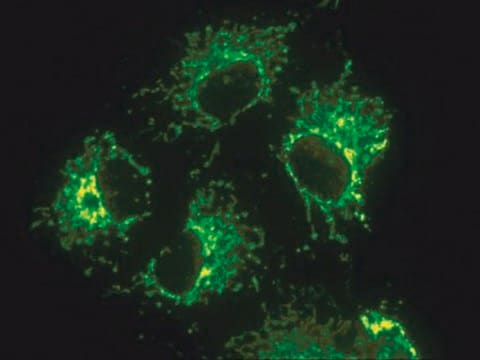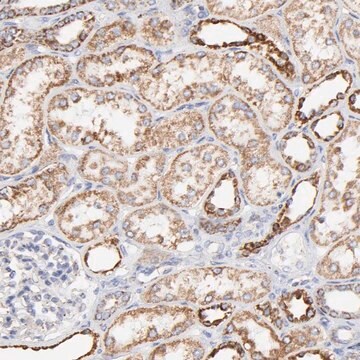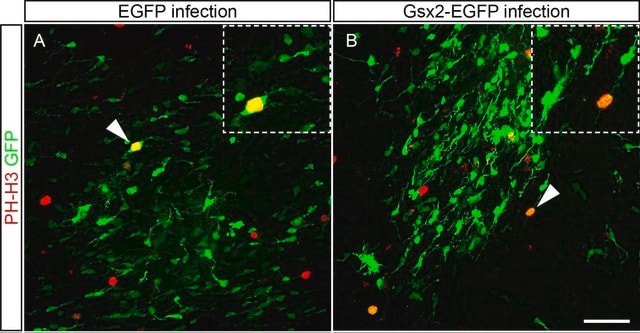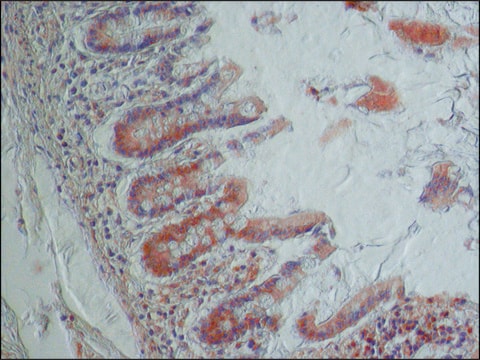MAB1273A4
Anti-Mitochondria Antibody, clone 113-1, Alexa Fluor™ 488 conjugate
clone 113-1, from mouse, ALEXA FLUOR™ 488
Synonym(s):
Human Mitochondria
About This Item
Recommended Products
biological source
mouse
Quality Level
conjugate
ALEXA FLUOR™ 488
antibody form
purified immunoglobulin
antibody product type
primary antibodies
clone
113-1, monoclonal
species reactivity
human (mitochondria protein)
should not react with
mouse (mitochondria protein), rat (mitochondria protein)
technique(s)
immunocytochemistry: suitable
isotype
IgG1
shipped in
wet ice
target post-translational modification
unmodified
General description
Application
Immunocytochemsitry Analysis: A 1:50 dilution of this antibody did not detect mitrochondria in primary mouse embryonic fibroblasts (PMEFs).
Quality
Immunocytochemsitry Analysis: A 1:50 dilution of this antibody detected mitrochondria in human adipose mesenchymal stem cells (SCC038).
Target description
Other Notes
Legal Information
Not finding the right product?
Try our Product Selector Tool.
Storage Class Code
12 - Non Combustible Liquids
WGK
WGK 2
Flash Point(F)
Not applicable
Flash Point(C)
Not applicable
Certificates of Analysis (COA)
Search for Certificates of Analysis (COA) by entering the products Lot/Batch Number. Lot and Batch Numbers can be found on a product’s label following the words ‘Lot’ or ‘Batch’.
Already Own This Product?
Find documentation for the products that you have recently purchased in the Document Library.
Our team of scientists has experience in all areas of research including Life Science, Material Science, Chemical Synthesis, Chromatography, Analytical and many others.
Contact Technical Service








